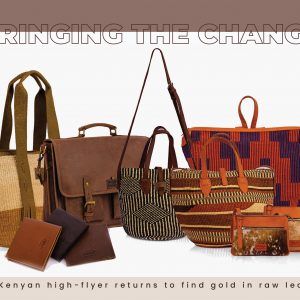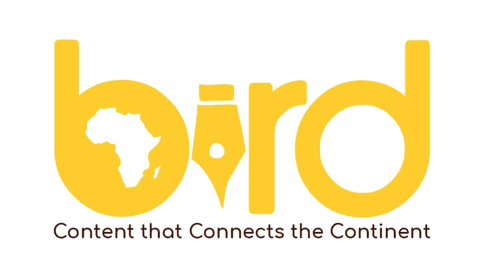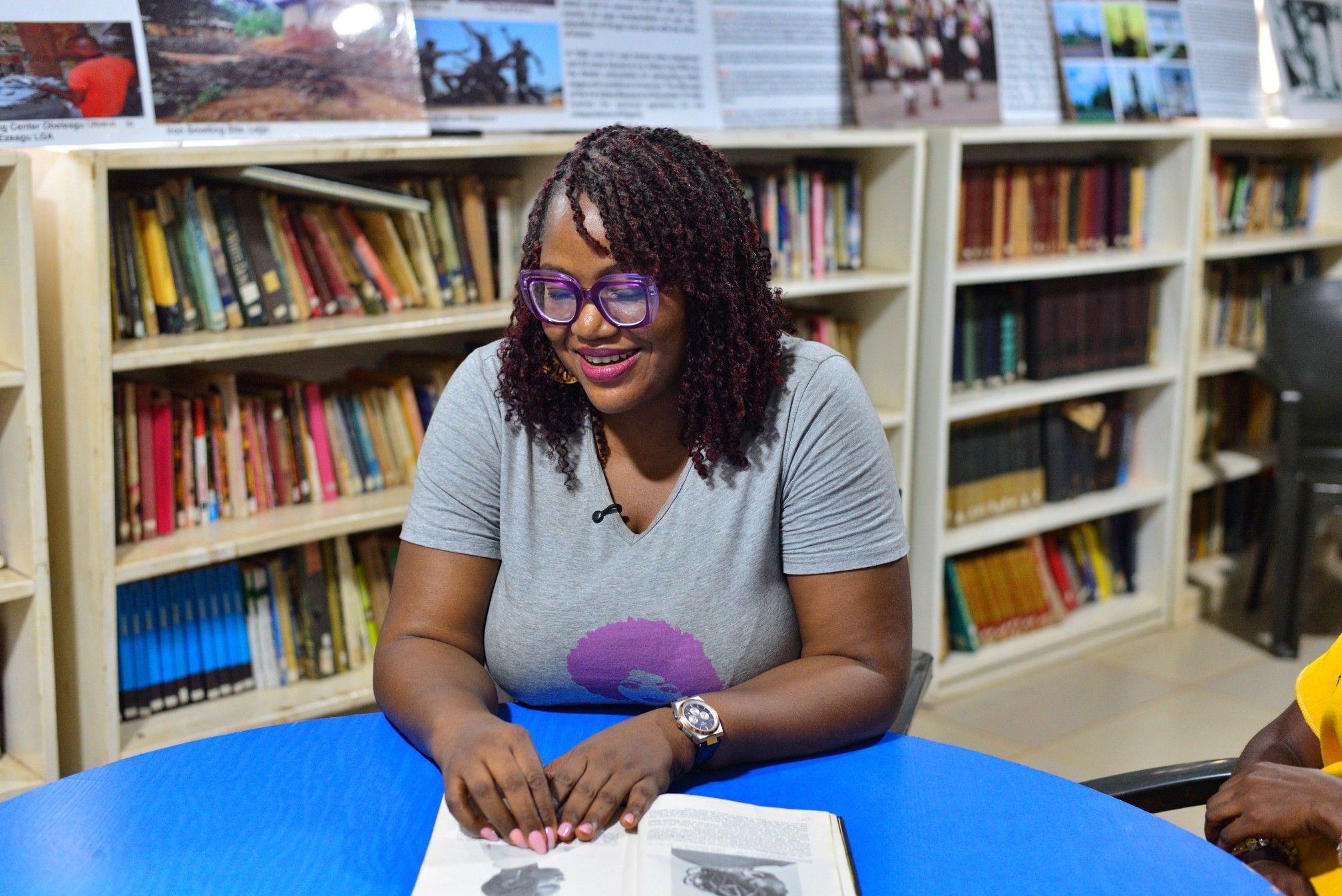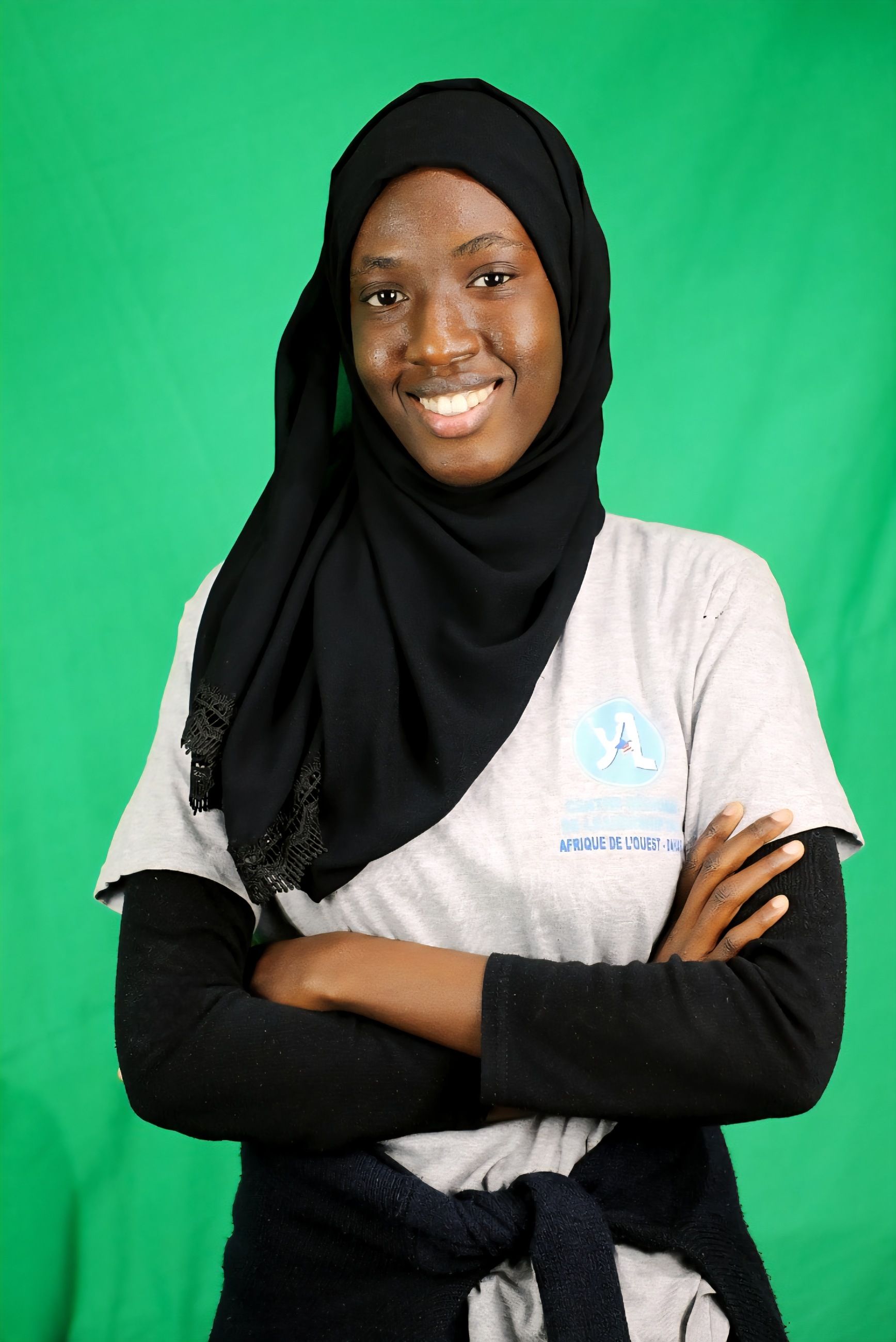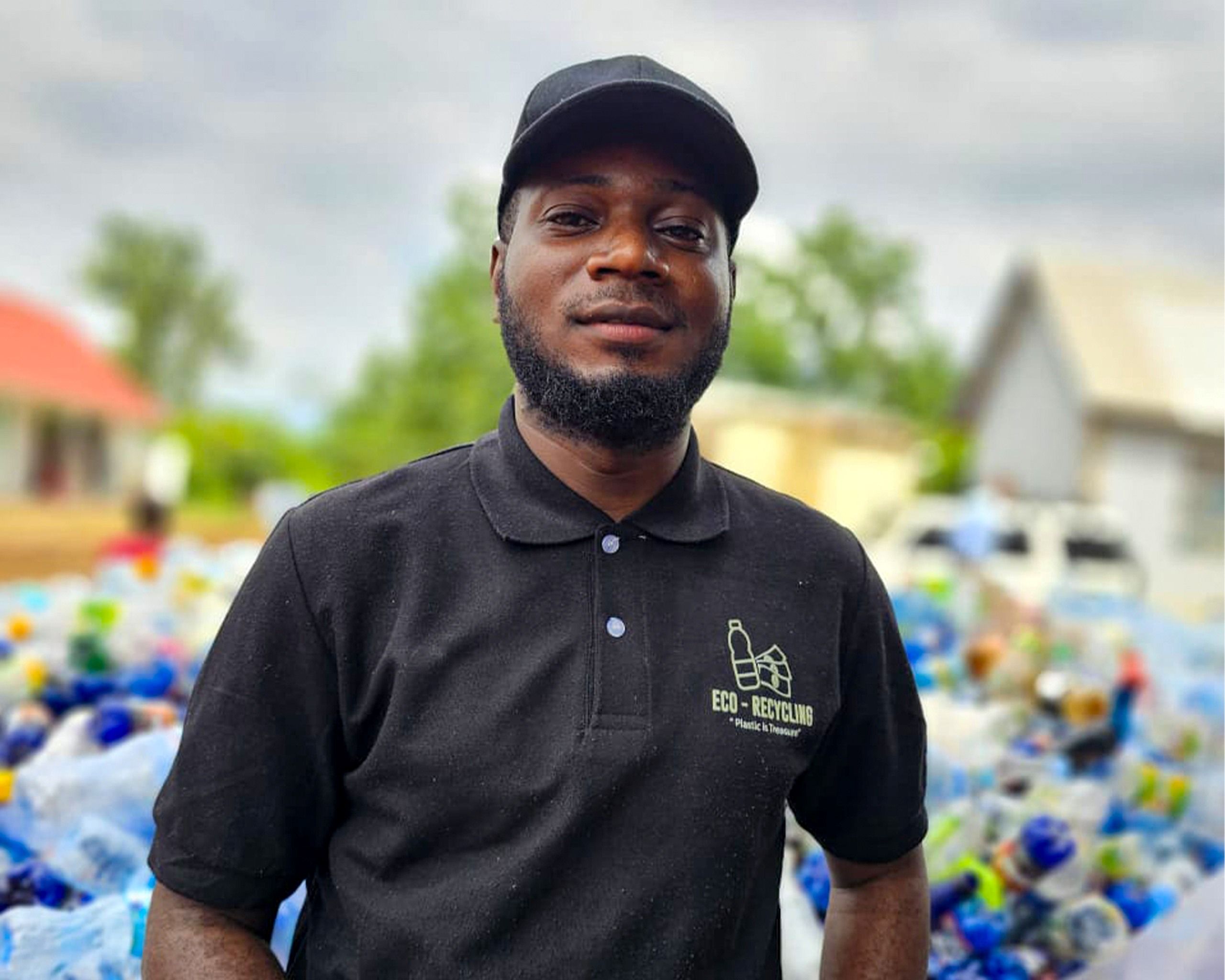Walking away from a well-paying international job to uncertainty isn't easy, but former World Bank economic consultant Chebet Mutai did just that after she decided she could do more to help her continent, at home.
By Anne Ndung’u, bird story agency
On an early afternoon in one of Nairobi’s most popular strip malls, I'm lost. I've arrived for an interview but am unsure where to find the woman I'm due to interview.
I approach a woman wearing a floral green short-sleeved kitenge dress and started engaging her. Habari yako (how are you)?” I say. Nzuri sana, asante (I am fine, thank you),” she promptly responds, then enquires whether I am the writer from bird story agency.
“I am Chebet Mutai,” she says, stretching her hand to greet me.
38-year-old Mutai is a former World Bank Economic consultant-turned-fashionista, entrepreneur, and founder of WazaWazi – two Kiswahili words that have been combined to mean, "be open-minded".
Mutai ushers me to her WazaWazi shop on the ground floor of the Valley Arcade. The shop is adjacent to a busy coffee shop - well situated to bring in regular foot traffic. It's dazzling; leather products of all kinds and colours are on display; what stands out are the bags in different designs, sizes, colours, and brand names.
I'm introduced to the ‘Kittony Bag’, named for veteran politician Zipporah Kittony, the 'Makosewe Bag’ , named after late media personality, Grace Makosewe, the ‘Luoch Bag’ dedicated to Kenyan stylist Connie Aluoch and the ‘Wangari Ladies Work Tote honouring the late Nobel Prize laureate and environmentalist, Wangari Maathai.
The proprietor, who looks a lot younger than 38, is the founder and chief executive officer of both WazaWazi Fashion, a value addition leather processing firm and sister firm, WazaWazi Safari Travel, a company that touts local tourism 'for those with an adventurous spirit and love for Africa’s heritage.'
Mutai's background
Mutai grew up in Nakuru in central Kenya, where her public service parents worked. After studying Economics and French at Kenyatta University, she landed a plum job at the World Bank. Flying around Africa as a development consultant, however, Chebet realised that many of the problems ravaging the continent were the same, regardless of what country she was in.
According to Mutai, when she did the maths, she realised that even her flights, which were meant to assist with African development, were unnecessarily costly and did not transform lives.
“Work-related flights would cost an estimated 5,000 dollars, inclusive of logistical and administrative charges; the figure would almost double; it simply did not make sense,” Chebet said.
“The cost of logistics and administration were higher than the impact of what we were doing as agents of development."
She recalled the bold decision she made to leave a well-paying job and plunge into leather goods — a sector that had been devastated in Africa after China experienced "opening to the world" in the 1980s and began flooding African markets with finished goods. That history, however, was not going to stop her. In 2013, after selling her personal car, Mutai ploughed her savings into starting her new business.
The entrepreneurship journey
“I had about 500,000 shillings (just over 4,300 US dollars), and I had a partner who bought the machinery — that is how I started”.
“In the first three months of manufacturing, life was hard. Not even my friends inquired what I was doing, and that is when I learned that the life of an entrepreneur is lonely,” she added.
Ironically, she says travels catalysed her transformation into entrepreneurship. Mutai decided to come up with a business that would allow her to fight the scourge of unemployment, which she had seen to be a significant problem on the continent. A side hustle had given her some insight into what would be required.
“Since I loved clothes and fashion, I would import the items, bags, from Dubai. I thought to start a fashion business and create employment at the same time,” Mutai explained.
On her social media page, she declares: “I believe that the change in Africa must be driven by the creation of employment by progressive Africans on the ground with a passion for the development of the African continent – Africans crazy enough to think that they can change things."
Mutai explained that her secret to success was "quality, quality and quality!"
“Quality is a way of life. It’s not a thing you do at the end. It’s something you do every step of the way,” she said.
The leather market
According to Isaac Noor, CEO of the Kenya Leather Development Council (KLDC), a State Corporation established to enhance the local leather industry, Kenya exports 90 per cent of its leather in raw form (semi-processed wet blue). In contrast, only 10 per cent is exported as finished products.
Presently, the global leather industry is estimated to be worth 150 billion US dollars, with Africa accounting for only four per cent. Kenya commands less than one per cent of this market, with sales of around 181,700,000 US dollars.
Mutai felt she could help rebalance the disproportionate amount of raw product sales, by offering finished, quality products in the local market. The company uses social media– but, word of mouth, Mutai said, is what brings the most sales.
The company purchases its leather exclusively from one of the 16 tanneries in Kenya, home to Africa's third-largest livestock population.
While the leather sector in Kenya contributes an estimated 0.3 per cent to Gross Domestic Product (GDP), there is wide recognition that it could contribute far more — if only value could be added locally. However, that also requires a shift in mindsets amongst local buyers.
One faithful WazaWazi client is the proprietor of the Mada Group of Hotels, Sukhdev Kavr Mahajan, 80.
“I began doing business in Kenya in 1972,” said Mahajan in her office-cum-shop, also based at Valley Arcade.
The WaziWazi empire
“To be honest, the products of WazaWazi are exceptionally crafted. And the leather is genuine and smells natural,” Mahajan says, in support of her neighbour.
With Mutai insistent that we visit the company's factory at the capital's Jamhuri Showground, the company's delivery bike riders were requisitioned to provide transport, cutting the travel time from well over an hour, to just over 15 minutes. The factory is a world of leather backpacks, change purses, clutch bags, laptop and tablet leather cases, beaded leather belts, and jackets.
Mutai employs 16 people in her factory operation.
“I made a conscious decision that as African people, we must stop theorising about the change required, for evident poverty is ubiquitously present. As individuals, we must step up to alleviate the depressing situation. For it’s only then that we shall be able to lift more people out of poverty as a continent,” she said.
Evelyn Ndelio, 50, is one of her employees and talks about how Chebet has not just transformed her life but many others from her Maasai community. The Maasai are herders and a vital source of the hides and skin for WazaWazi's operations.
Maasai women are renowned for their artistry in beadwork and Ndelio is one of those doing beadwork on the bags and other products.
“Chebet sent emissaries to our village in our ancestral Kajiado county, seeking women who were conversant with beading. And 10 of us volunteered to come to Nairobi to work for her,” explained Ndelio, dressed in a colourful traditional Maasai dress.
“Since then, our lives have greatly improved, for we are paid a reasonable monthly wage, a rare phenomenon in the past,” she added.
Chebet admits that the business environment gets more challenging by the day because of resource constraints, cost of doing business, and unfair competition from cheap imports.
“When I began the business, the local banking ecosystem was averse to loaning money to budding entrepreneurs with solid business ideas but were lacking tangible assets to act as collateral,” Chebet said.
However, she has managed to build up a base of “discerning global clientele” who keep her operations going even when the going is tough. And despite the speedbumps, Mutai's attention is firmly fixed on the road ahead. For her, just getting an opportunity to offer African youth training and show them opportunities, is more than enough to justify the entrepreneurial path she has taken.
“Your purpose is your endgame. That is your legacy. So if you start working on your purpose, you are building your legacy every day. Ease is a greater threat to your progress than hardship, so keep going. Keep working until you win,” she said conclusively.
bird story agency
Also Read: Entrepreneurship Lessons From the Gutsy Ladies Behind Vaakenya, the Kenyan Shoe-Making Company

